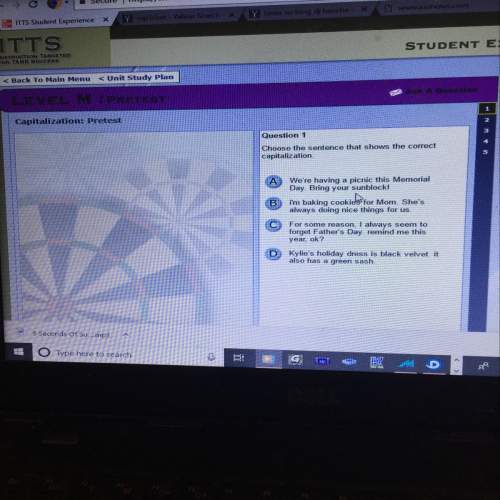
English, 18.10.2021 07:10 jadenmenlovep7s7uj
Two American tourists in Paris were looking for a post office. Both of them had studied French in high school. They stopped a passerby to ask for directions. The first American asked in French, "Where is the post office?" The second American, remembering what she had learned about French manners, said in French, "Excuse me, sir. Could you please be so kind as to tell us where to find the post office?"
The Frenchman turned his attention to the second American and gave clear, courteous directions. The second American was pleased and grateful. Afterward, the first American said, "How rude! I asked first, and he did not even respond to me. I had always heard that French people were rude, and now I know it's true."
Evaluate the role of rudeness in this encounter. Explain how the terms cultural absolutism and cultural relativism apply to this situation.

Answers: 1


Another question on English

English, 21.06.2019 22:00
Hi brothers and sisters may you tell me the answer of question ?
Answers: 2

English, 22.06.2019 02:30
In a group discussion, which statement most clearly uses evidence to support a conclusion? a) the author makes some good points, but i feel that he’s ultimately biased. b) the author proves that he’s biased when he uses terms like “silly” and “stupid”. c) the author obviously hates the way fast food tastes, which is why he’s negative. d) the author first criticizes fast food, and then goes in to criticize junk food.
Answers: 2

English, 22.06.2019 03:00
How can you avoid the problem of groupthink? a. by choosing a group leader to direct the group b. by composing the team of only like-minded individuals c. by encouraging all members to voice their opinions d. by keeping quiet when you disagree with another group member's opinion
Answers: 1

English, 22.06.2019 04:50
Read the passage, then answer the question that follows. no one could have seen it at the time, but the invention of beet sugar was not just a challenge to cane. it was a hint—just a glimpse, like a twist that comes about two thirds of the way through a movie—that the end of the age of sugar was in sight. for beet sugar showed that in order to create that perfect sweetness you did not need slaves, you did not need plantations, in fact you did not even need cane. beet sugar was a foreshadowing of what we have today: the age of science, in which sweetness is a product of chemistry, not whips. in 1854 only 11 percent of world sugar production came from beets. by 1899 the percentage had risen to about 65 percent. and beet sugar was just the first challenge to cane. by 1879 chemists discovered saccharine—a laboratory-created substance that is several hundred times sweeter than natural sugar. today the sweeteners used in the foods you eat may come from corn (high-fructose corn syrup), from fruit (fructose), or directly from the lab (for example, aspartame, invented in 1965, or sucralose—splenda—created in 1976). brazil is the land that imported more africans than any other to work on sugar plantations, and in brazil the soil is still perfect for sugar. cane grows in brazil today, but not always for sugar. instead, cane is often used to create ethanol, much as corn farmers in america now convert their harvest into fuel. –sugar changed the world, marc aronson and marina budhos how does this passage support the claim that sugar was tied to the struggle for freedom? it shows that the invention of beet sugar created competition for cane sugar. it shows that technology had a role in changing how we sweeten our foods. it shows that the beet sugar trade provided jobs for formerly enslaved workers. it shows that sweeteners did not need to be the product of sugar plantations and slavery.
Answers: 1
You know the right answer?
Two American tourists in Paris were looking for a post office. Both of them had studied French in hi...
Questions

Biology, 24.01.2020 10:31




Mathematics, 24.01.2020 10:31

Mathematics, 24.01.2020 10:31

Mathematics, 24.01.2020 10:31


Mathematics, 24.01.2020 10:31


English, 24.01.2020 10:31

Mathematics, 24.01.2020 10:31





Social Studies, 24.01.2020 10:31

Mathematics, 24.01.2020 10:31





